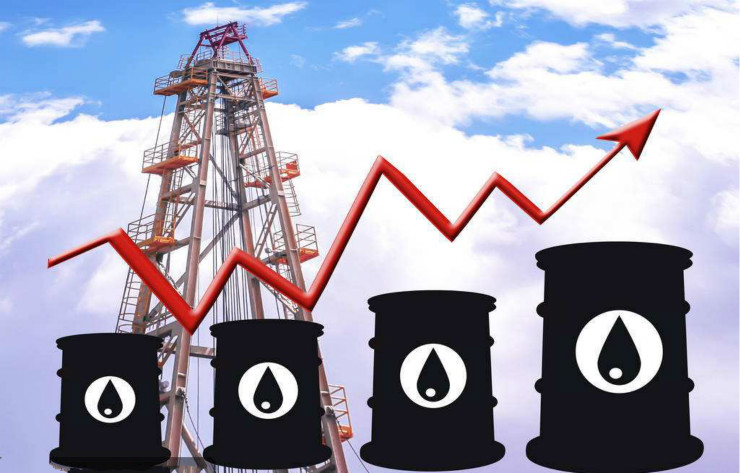
Oil hedge funds seem to have benefited from rising oil prices these days.Hedge funds investing in oil are understood to be attracting money at their fastest pace in more than a year, and commodity funds have recovered from last year's customer outflow as oil prices climbed to their highest level since 2014. wash away the industry's previous weakness.
Oil hedge funds have a good day.
Commodity funds have largely reversed the outflow of client money they encountered last year as oil prices climbed to their highest level since 2014. Companies such as Westbeck Capital Management and Commodities World Capital haveThe price of crude oil is expected to rise from the current about $68 a barrel to more than $80 a barrel soon.If their predictions come true, the current return of funds from oil hedge funds may have only just begun.
Until April 20th, there seemed to be signs that a further rise in oil prices was imperative, although people began to pick up confidence in the global economy. But geopolitical tensions and crude oil production shortages have also become the sword of Damocles on oil investors. It is worth mentioning that US President Donald Trump attacked OPEC on Twitter the day before yesterday. Trump called the current state "human factors driving up oil prices, which is unacceptable." Affected by the news, oil prices fell by 19 cents at one point.
But in spite of this, Peter Laurelli, global head of research at eVestment, a global provider of institutional investment data analysis, said that many oil hedge funds are also worth pursuing by investors in the face of possible market volatility, as they are likely to continue to attract inflows this year.
Between January and March this year, investors allocated $3 billion to commodity-focused hedge funds, the largest amount since the third quarter of 2016, according to eVestment. They withdrew $680 million from such funds last year, the first full-year net outflow since 2014.
Revenue from Pierre Andurand's Andurand Capital Management, which focuses on oil investments, rose 7 per cent in the month to April 13, and the fund's losses have narrowed to 0.3 per cent so far this year, according to a person familiar with the matter.
On the other hand, earnings at Arctic Blue Capital, a commodities trading consultancy focused on agriculture, precious metals and energy investments, rose more than 1 per cent in the first quarter of this year, after falling 12.5 per cent last year.
Although the oil price fluctuates, the rising trend has been determined.
Before Trump's attack on OPEC, oil hedge funds Westbeck and Commodities had actually released their views on the future of oil prices:
Jari Habib, chief operating officer of Westbeck, said outflows from Westbeck energy funds began to reverse this year (the double-digit decline set in February was also recovered), with the rate of return rising to 11 per cent as of Thursday, April 19. The company's energy fund outflow rate reached 17% in 2017. The company expects oil prices to rise above $85 a barrel in the second half of this year. As of April 19, 4.4 per cent of the company's capital outflows last year had basically been repatriated, according to Commodities World Capital. Commodities World Capital expects oil prices to rise to $80 in the second half of the year. Luke Sadrian, the company's chief investment officer, said he advised investors to trade "volatility" rather than simply buy and hold. However, Sadrian's core expectation for oil prices remains bullish.
But it is worth mentioning that some analysts call on everyone to invest rationally.. MichaelGerber, head of fund research at FundanaSA, an investment consultancy, said: "as oil prices are difficult to predict, it is difficult for fund managers in the industry to provide stable investment performance. "According to Tamas Varga, an analyst at PVM, the correlation between WTI crude and share prices has fallen from 90 per cent in 2017 to 36 per cent so far this year, suggesting that investors remain sceptical about whether oil companies can turn high oil prices into better shareholder returns.In addition, the rise in oil prices has not yet been fully reflected in stock prices, meaning there is still a lot of room for them to rise.Oil prices are currently at $74 a barrel, and Barclays analysts estimate that European explorers and producers are now expecting long-term oil prices of just $52 a barrel.
It is worth noting that Eric Moore, a well-known Miton Group income fund manager in the industry, was once very cautious about oil stocks, believing that dividend yields were too high, and now began to increase his holdings of such stocks. "as oil prices rise, dividends are more sustainable," he said. "
A variety of factors have contributed to higher oil prices.
For the recent rallyRising geopolitical risks are also blamed on OPEC and Russian production cuts over the past 16 months, which have helped push up crude oil prices.It is worth noting that despite the rise in oil prices and the decline in global inventories, OPEC is likely to maintain production cuts until 2019, and Saudi Arabia has not sent any signal that it wants to reduce production cuts.
Trump's threat to withdraw from the Iran nuclear deal has been pushing up oil prices. Saudi Arabia, the world's largest oil exporter, wants to push oil prices to $80 a barrel to help cover the government's policy agenda.
(this article is produced by Futu Information compilation team, compiled / Guanjie, proofread / Huang Ruixue)
